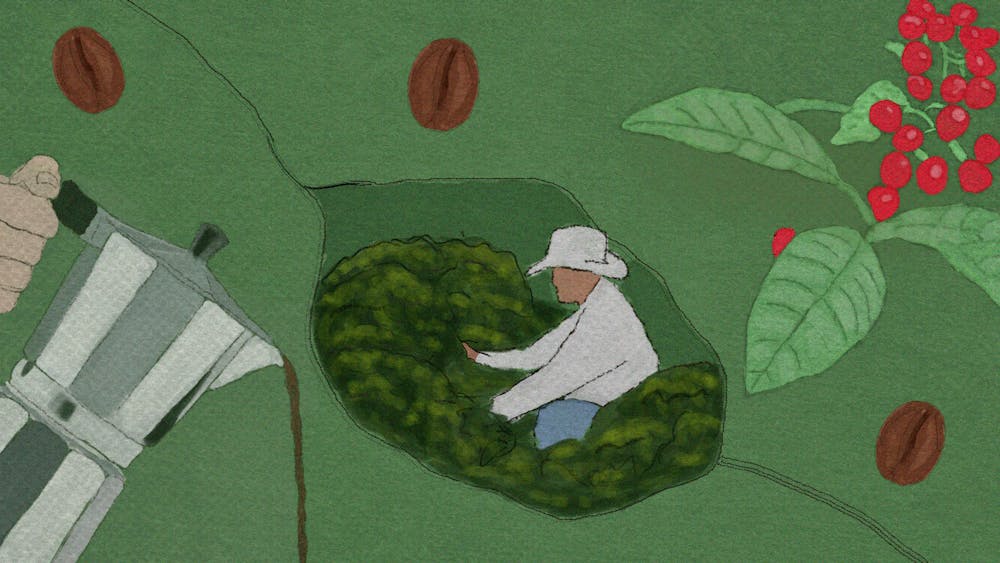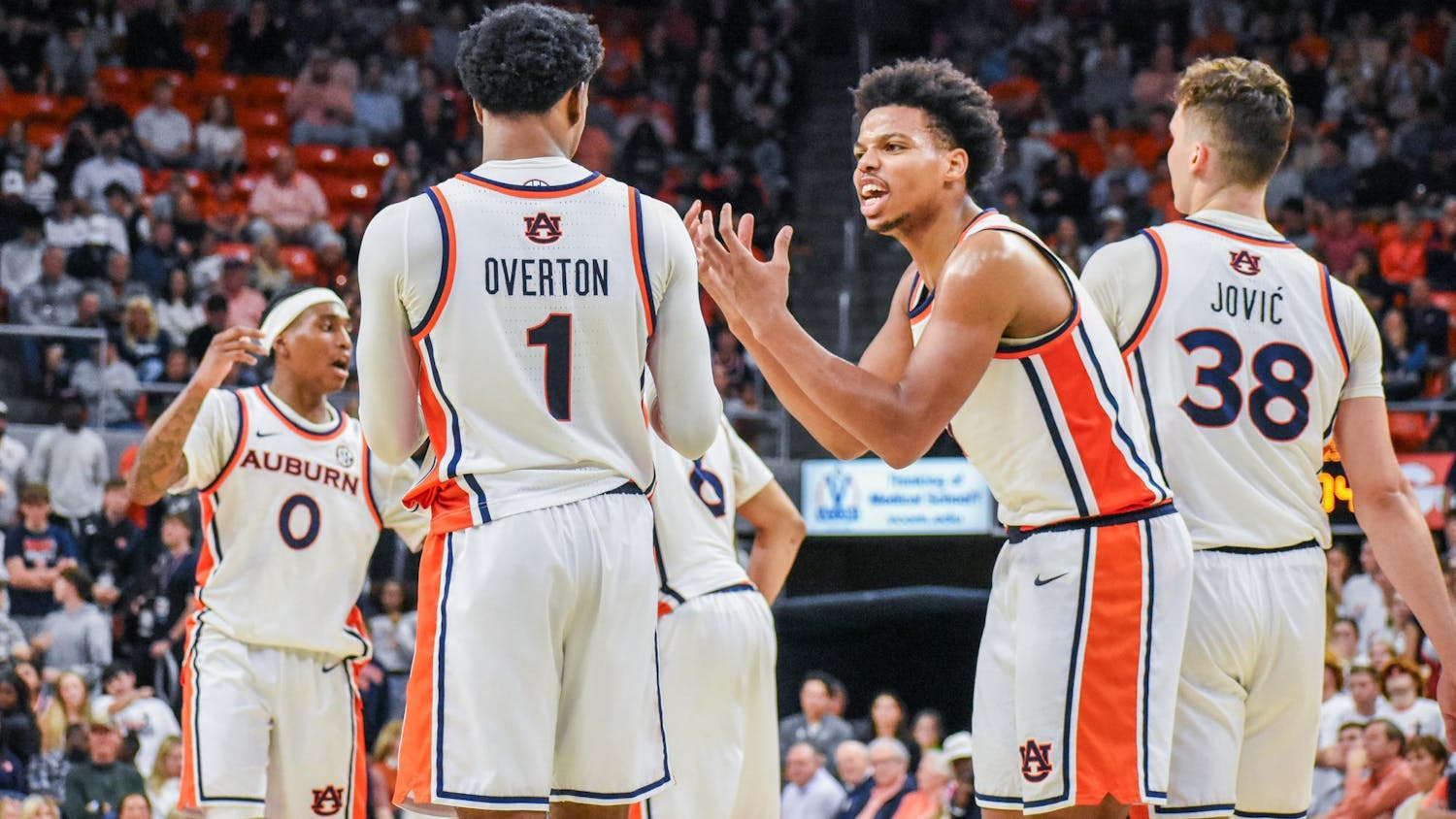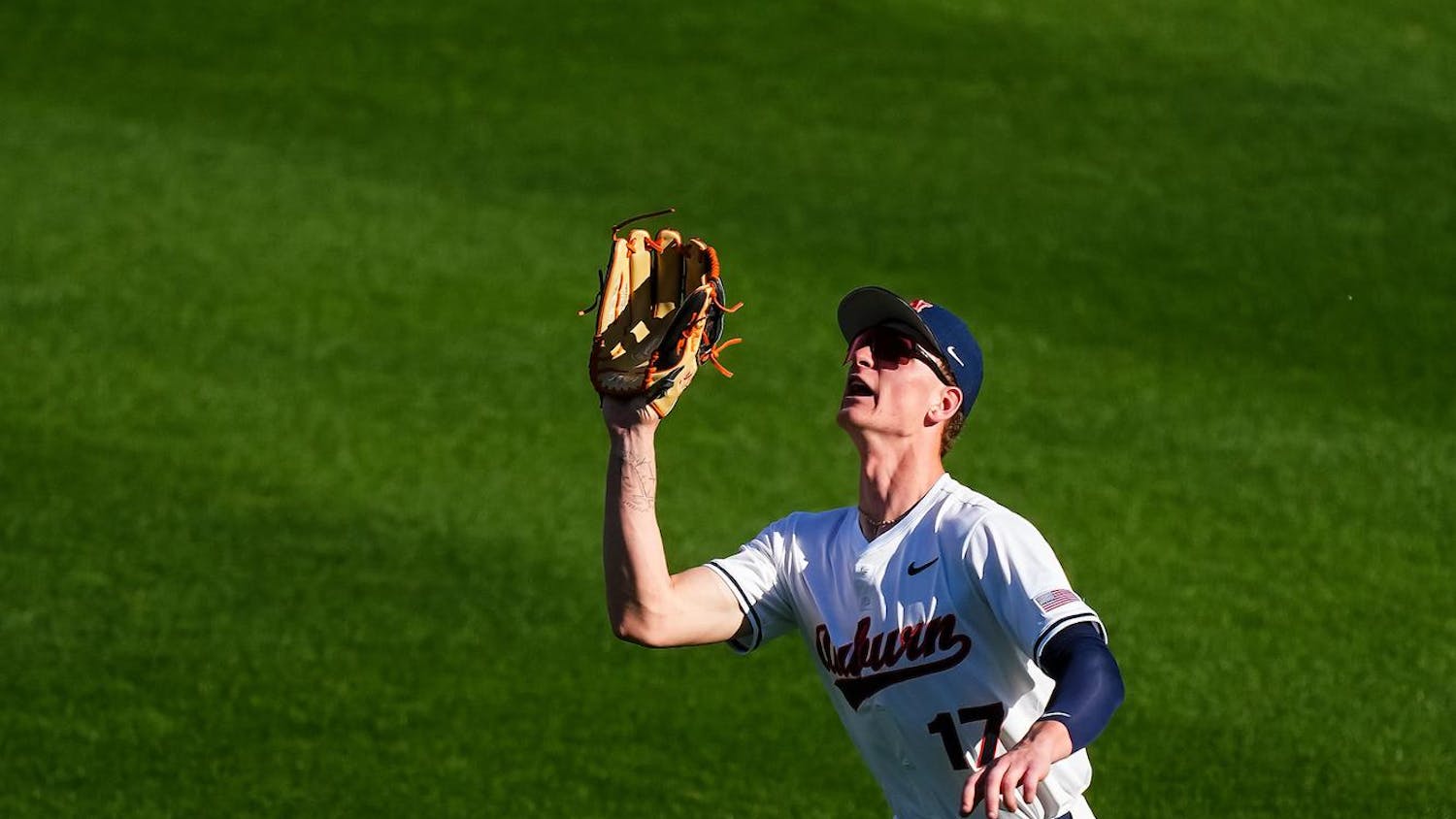After three hours of headache-inducing car sickness caused by miles of dirt road leading deep into the jungle mountains, we arrived at Kopi Punik Sumbawa, an award-winning coffee shop deep in the rural landscape of southern Indonesia.
What followed was the rewarding experience of drinking some of the best Arabica coffee in the world – and it cost only $6.43 for eight people. This surprised me. 80 cents for a cup of coffee is a far cry from the average $2.86 Alabamians pay for their black coffee.
“These growers aren’t compensated fairly,” said the man sitting beside me. He worked for a local Opelika coffee shop and was visiting Sumbawa in part to explore a future career in coffee exporting.
The National Coffee Association reports that two-thirds of Americans enjoy a cup of coffee every day. In 2022 alone, the industry generated a total of $343.2 billion. We love our coffee here in America, but few of us realize where, and how, we get our caffeine.
While college students like us cannot completely upend the system of international agricultural trade (yet), we can all play a part in supporting fair trade and caring for the people who grow the products we enjoy daily.
According to David Bizilia, owner of Sidetrack coffee, a local cafe in Opelika, Alabama, “Coffee that is grown passes through the chain of care…to us. It’s kinda cool because …what has started to happen over the past thirty or forty years… [is that] people who really care about the quality of the coffee start connecting with each other and building strong relationships, from the farmers, to the people who wash the coffee, to the exporters who connect them with buyers, to the roasters and cafes and your brewers and drinkers.”
The issue is that not everyone who sells coffee cares about their coffee. Coffee farming requires an incredible amount of labor, and many coffee farmers pick by hand. Bizilia noted the secondary difficulty of connecting the growers to the drinkers: “... Coffee is not an expensive crop to plant, but it is very expensive to process and to do all the logistical things to get it from a farm to a washing station. Like how is some random guy in Ecuador going to sell his coffee to a roaster in Massachusetts?”
There are many opportunities for exploitation. The roasters could be paying too much, or the washers could be underpaid or the farmers might not be fully compensated for their work. For example, many companies only pay farmers after they grow and harvest their crop, based on a grade given to sample roasted coffee.
“The farmer has no control no matter how hard they worked. ... They spent the whole year and a subjective someone graded your coffee unwell,” says Bizilia.
So how do students in Auburn, Alabama, participate in supporting “chains of care” in the coffee industry? The answer is simple: buy from the people who care.
Bizilia spoke about the greater role of “making the sacrifice.” What he meant was that one has to be willing to pay the extra dollar and a half to ensure that the right people are supported. Tom Wimbledoe, a roaster in Norway, directly pays his growers in Kenya before they grow their coffee and reports his finances online. Coffee Collective is another organization that directly compensates their growers. Bizilia commented on the sacrifice of specialty coffee, saying, “I actually don't have the budget to buy coffee, which is really a luxury item, everyday. … This is a treat for me.”
But you don’t have to know every roaster by name – you only need to know the power of the local coffee shop. When you personally know the brewer behind the counter, you know if you are supporting someone who wants the best for their drinkers and their growers. To Bizilia, there is a beauty in sharing a drink or food with someone because it means you are sharing the work of people all over the world, from the people who grew and picked it to the people who shipped it to the people who serve it to you. An ethical coffee adds to that. “If you count the cost, you realize how special the coffee is,” he added at the end of our conversation.
Ensuring that what you give your money to and participate in is ethical is difficult in our globalized world, but there are surprisingly simple steps we can all take toward a healthier and kinder world. For coffee, one solution is to shop locally, supporting people you can meet instead of faceless corporations. The next step is to share what you learn when you meet these people. A lot of us already do that.
“Be curious,” Bizilia says. "Be more curious and share what you learn.”
Do you like this story? The Plainsman doesn't accept money from tuition or student fees, and we don't charge a subscription fee. But you can donate to support The Plainsman.





